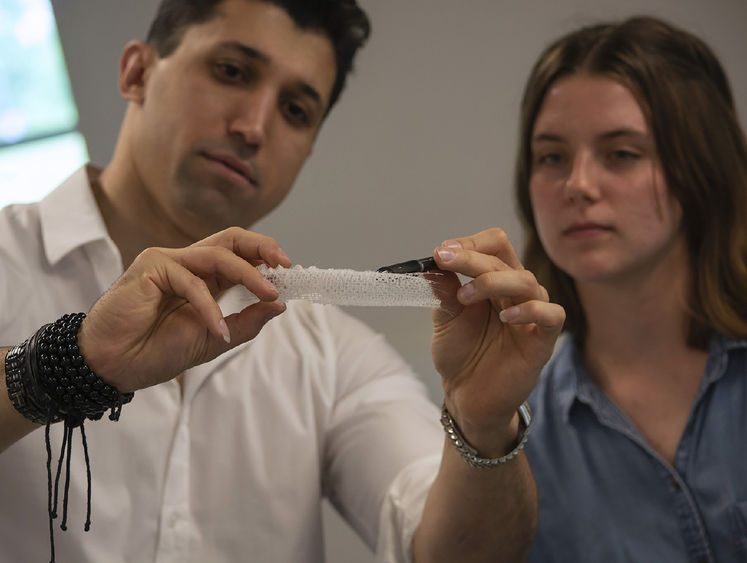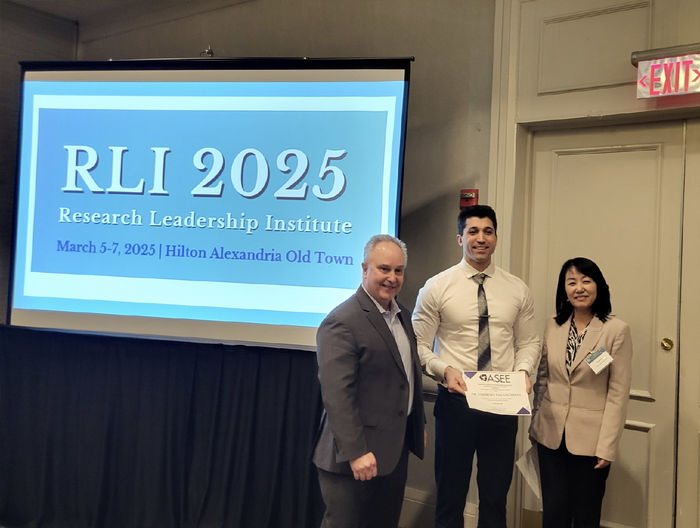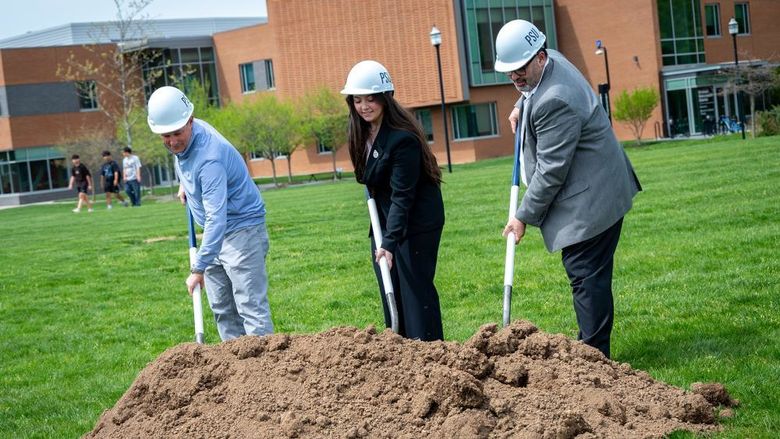
Fariborz Tavangarian, left, assistant professor of mechanical engineering, and Olivia Lowe, mechanical engineering student, examine a Euplectella Aspergillum marine sponge to select the proper strand, or spicule, to be evaluated by scanning electron microscope. Tavangarian is researching the potential for the spicules to be used in human bone tissue engineering and other applications.
MIDDLETOWN, Pa. — Fariborz Tavangarian, associate professor of mechanical engineering in Penn State Harrisburg’s School of Science, Engineering, and Technology, was recently awarded the Curtis W. McGraw Research Award from the American Society for Engineering Education’s Engineering Research Council.
The honor recognizes Tavangarian for “exceptional interdisciplinary research contributions in bioinspired materials,” according to the award description. He received the award at the ASEE’s 2025 Research Leadership Institute in March.
The Curtis W. McGraw Research Award was established in 1957 to recognize outstanding early achievements by young engineering college research workers and to encourage continued productivity, according to the ASEE. Two awards are given each year: one to the top applicant from a program that grants doctoral degrees and one to the top applicant from a program that does not grant doctoral degrees.
“I am deeply honored and grateful to receive this prestigious award,” Tavangarian said. “This recognition is not mine alone but the collective efforts of my collaborators, colleagues, faculty, students and all those who have contributed to advancing the research in my lab.”
Tavangarian’s other achievements include receiving a National Science Foundation Faculty Early Career Development (CAREER) award in 2022 to further develop bioinspired bone implants with enhanced mechanical properties. The work was inspired by intricate spicules, which are concentric cylindrical structures comprising the skeleton of marine sponges.
“Nature serves as the best source of inspiration,” Tavangarian said. “In our lab, we leverage nature’s ingenuity to design and fabricate advanced bone implants with enhanced performance, aiming to accelerate patient treatment and recovery. Inspired by spicule architecture, we are actively developing next-generation bone implants to promote early fixation at the injury site, deliver therapeutic agents and drugs for enhanced healing and withstand higher mechanical loads. Our aim is that these innovations will ultimately facilitate faster recovery, enabling patients to return to their normal lives in a shorter period.”
Tavangarian’s research has been commended for its novelty, intellectual merit and societal impact, particularly in medical applications, according to nomination materials. He has authored 74 peer-reviewed journal articles, in addition to dozens of conference papers and presentations as well as two book chapters, and his scholarly work has been cited more than 2,000 times.
Tavangarian is the director of the Advanced Materials and Manufacturing Lab at the college. He received the Faculty Research Award from the School of Science, Engineering, and Technology in 2024, and he also received an Outstanding Mentor Award for his impactful mentorship of students from underrepresented groups in STEM.





